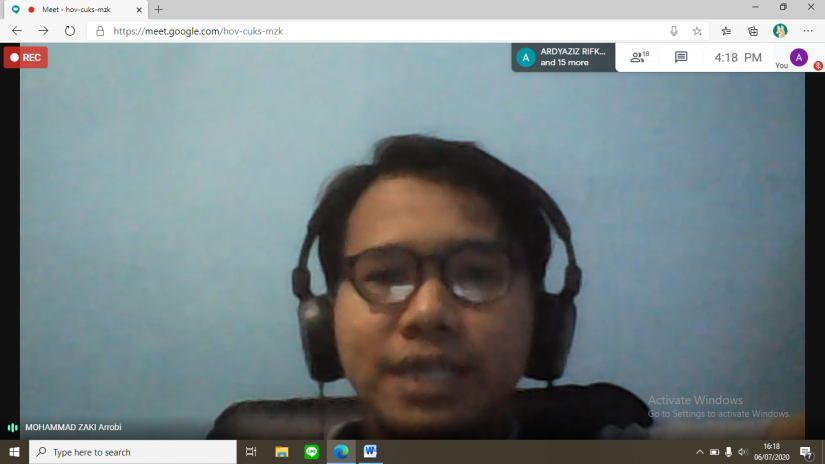
Yogyakarta, July 6th 2020—Jamaah Muslim Fisipol (JMF) conducted the NGOPI discussion titled “The Complicated Matter of Papua Racism: What is still lacking?” with Zaki Arrobi, a professor from the Sociology Department, as the speaker last Monday through the Google Meet platform.
Zaki opened the discussion by reflecting on the universality of Islam’s fight against racism. “A lot of historian in the early years of Islam said that a lot of slaves were freed by the prophet’s friends, which are assabiqunal awwalun. Historians also said that Islam spread mainly because of its egalitarianism,” Zaki said.
Unfortunately, racism still continues until today. “The thread that ties racism, colonialism, and capitalism can’t be broken. Colonialism came from the feeling of superiority. People used to see colonialism as a culture, which is a belief that white people are meant to be a civilizer, an agent that civilize other nations. This is what Foucault call a biopolitic, where the body is the arena for political fight. The whites and blacks are divided into categories such as civilized and savage,” Zaki continued.
Zaki elaborated the death of George Floyd – a death in the hands of the American police – which paints a picture of systemic and structural racism. In America’s criminal and justice system, there is a survey that blacks are the majority of the inmate. Racism is also shown through how low waged blacks is affected with improper housing and stuck in informal jobs.
When looking at the national context of racism in Papua, Zaki explained that it is important to see it in the historical and structural side. Zaki maps the source of racism in Papua which includes historical and political identity problem, the failure of development, marginalization, discrimination, as well as violence in the past.
“There is a stereotype stuck to Papuans; that they are drunkards, lazy, and other things. These stereotipes are the fuel to mass persecution like the one that happened in Surabaya. And when they exercise their political rights, they are often seen as a threat under the guise of “NKRI until we die” which does not exclusively belong to the military anymore but also to the civilians and para-military civil organizations,” Zaki said.
Zaki thinks that Papua problems tends to be addressed as a security issue. “Civilian right to organize as well as journalists and medias exposure are very limited. It is a shame how the government doesn’t see this issue comprehensively,” Zaki reflected.
“Solving the issues in Papua simply through construction have failed. Constructions of bridges, roads, and Trans Papua does not ease the social strain in the grassroot. The creation of infrastructure tends to leave Papuans and push aside cultural communities,” He elaborated further.
“Pendekatan keamanan pun juga telah gagal dan malah menyisakan luka, problem penuntasan HAM harus diselesaikan terlebih dahulu, akan sulit kalau hanya mengandalkan prioritas ekonomi. Ibaratnya, luka harus diobati dulu,” tambah Zaki.
“Using force in solving this problem has also failed and left scars. The problem of human rights has to be addressed first if the government wants to address the economy. The wounds have to be healed first,” Zaki said.
In the end of the discussion, Zaki reiterated the importance of egalitarianism for Papua. “The new generation needs to imagine a more equal Papua. We can learn from other countries on how to make that a reality,” he said to close the discussion that afternoon.
